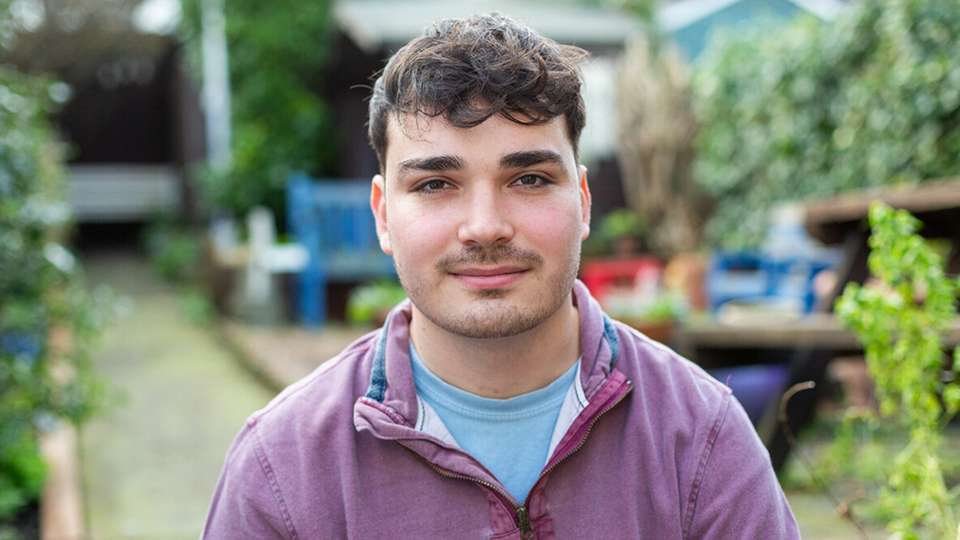
“I can’t see how any family navigates dementia without an Admiral Nurse”
When Elliott’s father was diagnosed with young onset Alzheimer’s disease in his fifties, family life was changed forever.
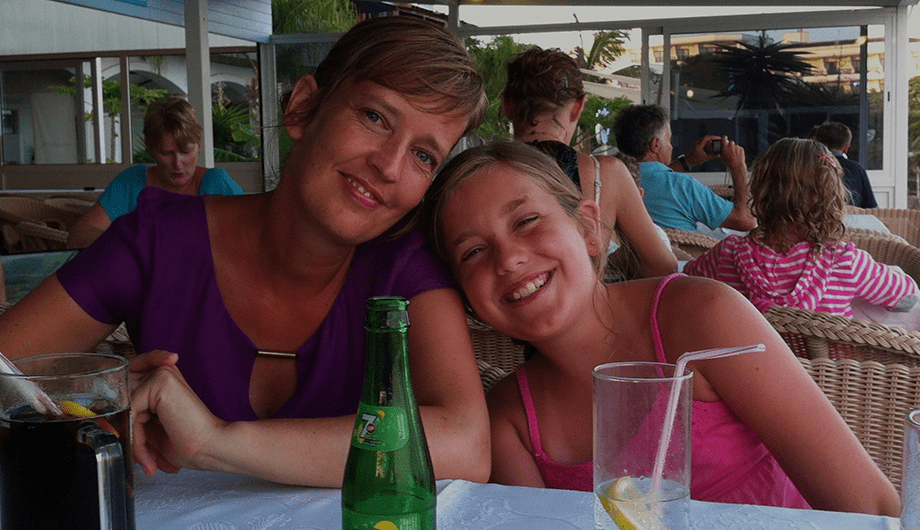
Chloe shares her experience of being a young carer for her Mum, who was diagnosed with frontotemporal dementia at 47, and died aged 51.
She was a teaching assistant at my primary school, so we would walk to and from school together each day and chat about anything and everything. These are some of my fondest memories.
Mum was everyone’s favourite teacher. At the start of each school year, people would frantically look to see if they had Mrs Lambert as their teaching assistant. If they did, it was going to be a good year ahead. She was bubbly, expressive and the kindest soul you’d ever meet.
My sister Amy and I were always obsessed with musical theatre, and Mum would treat us to trips into London to see shows like Les Miserables and Phantom of the Opera. I cherish those times so much. I still love going to the theatre and whenever I do, I can’t help but think, “I wish Mum was here sitting next to me.”
It was on a family holiday to the Dominican Republic that I started to notice changes in Mum’s behaviour. She wanted jelly for dinner, which was very unusual.
Once back home, she would insist on going to the shops repeatedly throughout the day, only to return home with nothing. I also recall one morning when she was making breakfast for us, and she’d forgotten how to boil an egg. She asked Dad how long she should boil it for, and then a few moments later, asked him again. Repeating questions and forgetting simple tasks began to occur more frequently.
The word dementia didn’t even enter my mind. After all, Mum was in her forties. But after seeing a GP in 2018, she was referred to the memory clinic and diagnosed with frontotemporal dementia. Mum was 47 years old; I was 14.
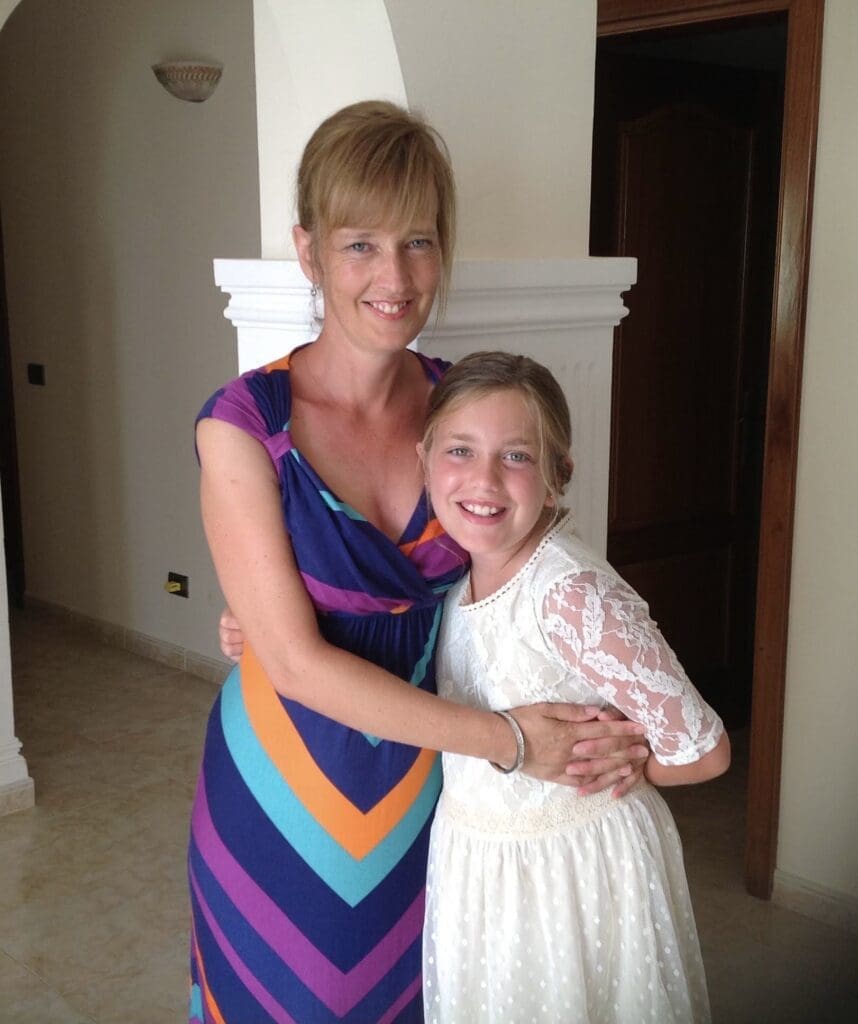
After her diagnosis, Mum’s dementia progressed rapidly. She became incontinent and unable to dress herself, so my sister and I would wash and dress her each day. The reversal in family roles was profound.
When all the focus for my classmates was on GCSEs and doing well in exams, I was trying to keep my head above water. I was so lucky to have a tight-knit group of friends who supported me through this time. Only two or three of them knew about what was going on, but they were amazing. My secondary school also arranged for me to see a counsellor regularly, which really helped.
I found it hard to switch off from ‘young carer mode’ when I was at home. I was constantly worried if Mum needed something – whether it was a drink, a wash, a change of clothes, her medication… I just couldn’t concentrate on my homework while I was there. So I started going to the local library, where I was able to focus and get my work done.
All my teachers were aware of Mum’s diagnosis and the situation at home, so if I needed extra time on assignments or flexible arrangements, it wasn’t an issue. When you’re a young carer, your time for homework can just disappear. I’m so grateful for my school’s understanding at that time.
Looking back, it was so important that Dad, Amy and I worked as a team to care for Mum. Sharing the load meant that we could not only support Mum better, but also each other.
When I was in the sixth form, Dad organised respite care for Mum. It meant we all could have a much-needed break and do things together that weren’t based around our caring responsibilities. It enabled us to do some things that would’ve been impossible otherwise, like trips to the seaside or day trips into London. Keeping this semblance of a family unit was so important.
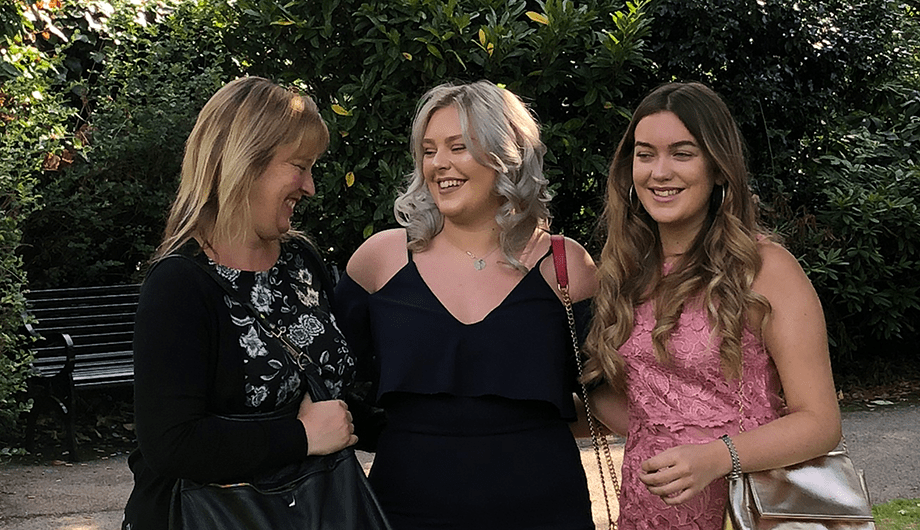
At this time, the Dementia UK website was an amazing source of information and support. Sometimes, educating yourself about what’s going on helps you feel a little less isolated. In reading other people’s stories, you realise your own isn’t a complete outlier. Dementia UK has some wonderful resources to help you through and the specialist Admiral Nurses understand the complexities of dementia. There is even a Consultant Admiral Nurse who specialises in supporting children and young people.
In November 2021, Mum died at the age of 51. The period afterward was a mix of shock, grief and adjustment. There was an overwhelming sense of, “What now?”
Nearly four years on, one of the hardest things I deal with is trying to remember the best parts of being with Mum – the musicals, the holidays, the walks to and from school – instead of focusing only on the memories I have after her diagnosis. 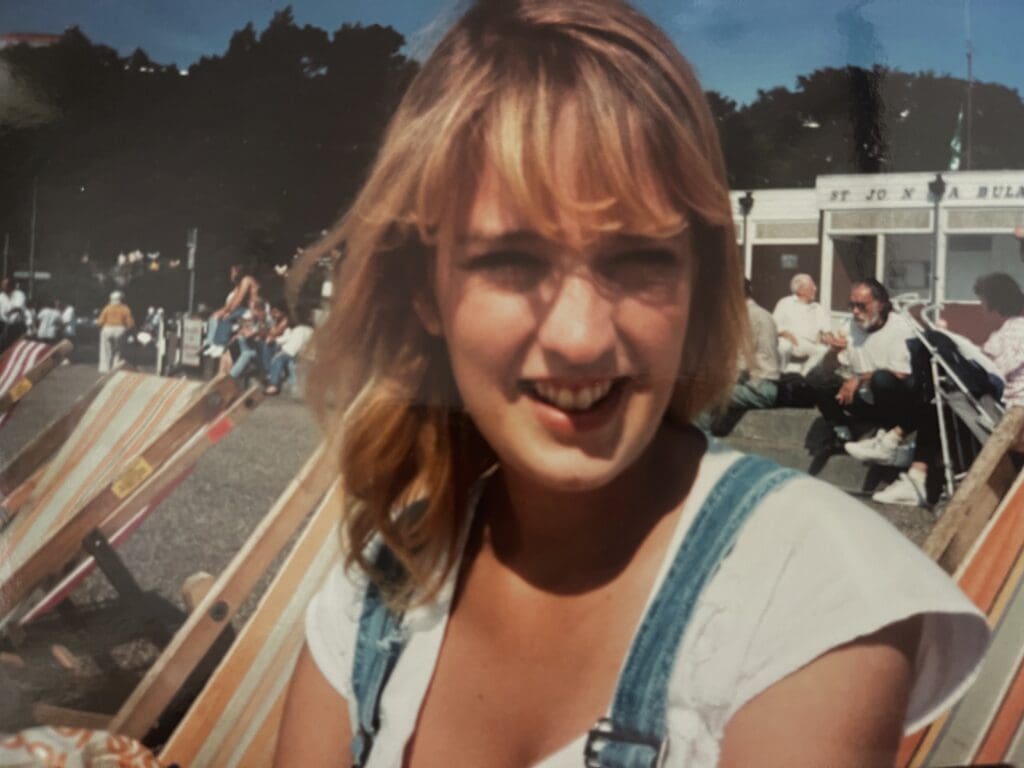
Not a day goes by that I don’t think about her. And sometimes I catch myself thinking she will just come through the door again. For me, grief is a lingering emotion that doesn’t fade. I just live with it. Mum was, and always will be, my best friend.
I want to share my story because I know that being a young carer can feel incredibly lonely. You might think that you can’t talk to anyone about what’s going on at home. But support is available. Whether it’s flexible arrangements at school, counselling or simply opening up to some close friends, taking that first step will really help.

When Elliott’s father was diagnosed with young onset Alzheimer’s disease in his fifties, family life was changed forever.
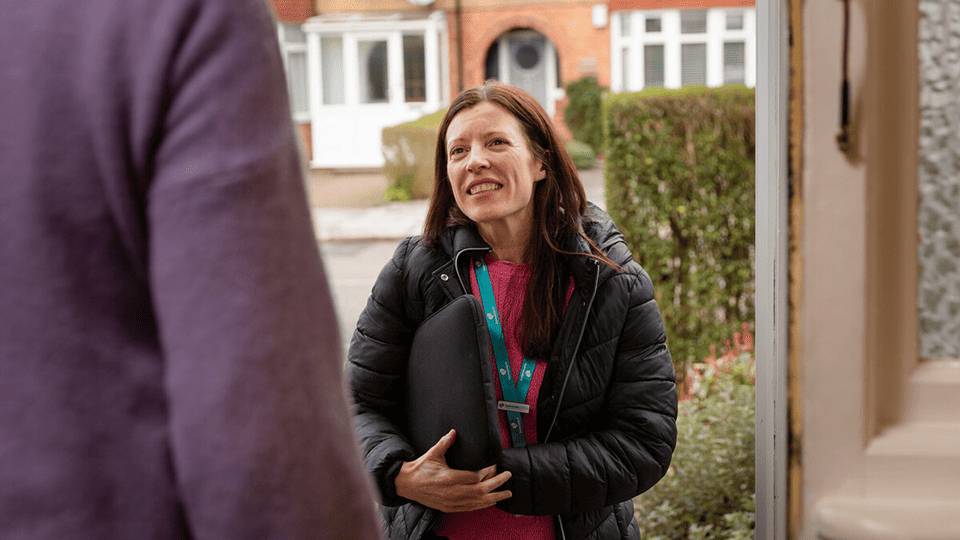
Hannah Gardner has recently been appointed as Consultant Admiral Nurse for Children and Young People.

Admiral Nurse Lizzie Harrison provides support strategies for young people caring for someone with dementia.